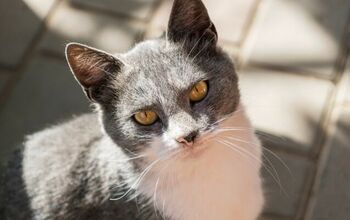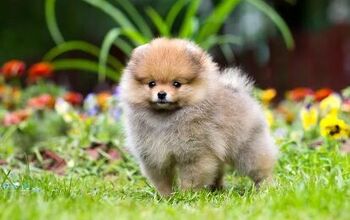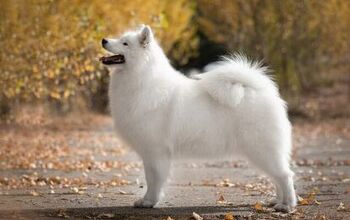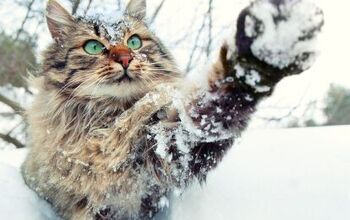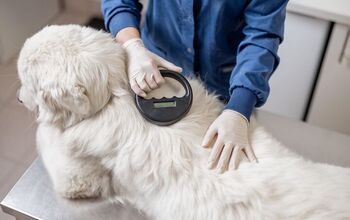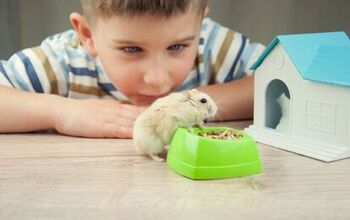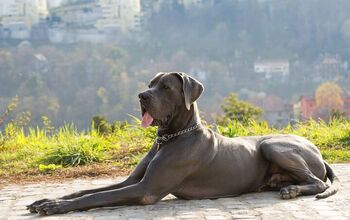Morkie


About Morkie
Morkie Basics
Tiny and adorable, the Morkie is an affectionate crossbreed who loves people and will get along with all of your other pets. By combining two popular breeds, the Yorkshire Terrier and the Maltese, breeders managed to create a beautiful dog with a loving personality. These petite balls of fluff are not all cuddles and smooches though. A Morkie can be as bullheaded as they come, so previous experience with small breed dogs might be beneficial. These little dogs can cause big problems if you aren’t careful. Morkies are also playful and will run to chase a ball for quite some time or find fun in interactive dog toys. They will surely keep older children in the home busy playing and then cuddle up in their beds at night to sleep. So it’s no wonder why these tiny pooches are one of the favorite family dogs! The Morkie attaches to his family quickly and tend to form strong bonds with their pawrents. While heartwarming and cute, his love for the family can create a problem when he needs to be left alone. These pups will become so attached to their families that they won’t be able to handle time on their own, so training them early and often in a must.
Related: 10 Best Harnesses For Morkies
Due to their small size, Morkies are fragile and can be hurt easily if you’re not being careful with them. This crossbreed does best with families without small kids, who can seriously injure this furry baby in careless playing. They are best suited to families with mature children or even elderly couples looking to add a little fluff to their lives. As an adaptable and easy going pooch, a Morkie can be happy with a big yard in the suburbs or in a minuscule city apartment. A few, short walks each day will keep this Yorkie and Maltese cross content and well-exercised. That’s good news for urban dwellers. They can keep their pup in their apartment without fear of denying them the space they need to say happy and healthy.
Origin
Before the 1980s, what are now designer dogs were simply considered to be adorable mutts. However, after the Labradoodle became a worldwide phenomenon, more and more breeders turned to crossbreeding to create new and improved dogs. Their goal was to minimize the potential for hereditary canine diseases and develop breeds with unique yet desirable traits. Naturally, the sudden influx of countless mixed breed dogs that were now touted as designer breeds made it hard for anyone to pinpoint the origin of a specific hybrid. It was anarchy for a while there. At best, we can only estimate when and where a designer dog breed was first made. The same goes for the cute Morkie! These pups popped up so suddenly and in such an abundance that it’s almost impossible to determine where it all began.
What we can do, though, is estimate based on the information on other, similar designer dog breeds and try to pinpoint, at least loosely, when and where the Morkie breed was first born. It’s most likely that these tiny mixes were bred intentionally for the first time around early 2000s or late 1990s, and somewhere in Northern America, just like many of their designer dog counterparts were. This would mean that the breed is at least two decades, or more, in the making, so it’s relatively new and doesn’t have much history to speak of. Still, it doesn’t mean that these dogs have nothing to boast with just because they haven’t been around for long!
The Morkie was bred to be a well-loved lapdog – the main objective for breeders was to create a small-sized dog, with low-shedding coat, and adorable teddy bear looks. One look is all it takes to see that the undertaking was more than successful, as the cuteness of these pooches will melt you in a puddle in no time. These dogs are designed to be loved and failing to fall for them requires significant effort and a stone cold heart.
Despite the fact that these fluffy dogs have been around for a couple of decades, they are still not officially recognized as a breed. This means that, since like all designer dogs, Morkie isn’t recognized by the AKC, you won’t be getting official pedigree papers when you get your puppy. Naturally, if you are getting a Morkie from a reputable breeder (as you should), you can always inquire about their parent’s pedigree as these dogs come from two universally recognized purebred dogs, to learn more about their ancestry and possible issues or traits that they can inherit. Sometimes, some smaller canine organizations dedicated to promotion of designer dog breeds can provide papers and a way for breeders to register their litters, but that’s less common.
Of course, the lack of official papers doesn’t stop people from wanting this feisty teddy bear lookalike as their perfectly lap-sized pet! And it shouldn’t – your pet might not be able to compete in shows for purebred dogs, but they’re no less lovable and adorable because of it.
While papers and official recognition are not important to everybody, the origin of their dog should be.
A lot will depend on the breeding and the parents, so it’s logical you want to know where your Morkie came from. You should make sure that they are not sourced from a backyard breeder, as this could mean that they have genetic issues or diseases that could seriously endanger their health. Not to mention that it would be supporting cruel and abusive behaviors, as irresponsible breeders with puppy mills keep their dogs in inhumane conditions – if you are not getting your Morkie from a rescue or a shelter, make sure to do thorough research about the breeder selling your puppy!
While “Morkie” is definitely the most used name for this designer dog breed, you may also come across names like Yorktese or Morkshire Terrier. Even names such as Maltiyork, Malkie, Malki, Yorkiemalt or Yortese have been mentioned a few times. They’re not as catchy, but some people seem to prefer them. So if you are ever confused by those alternative names, rest assured that all of them are Morkies.
Pedigree
The Morkie was developed by breeding a Maltese to a Yorkshire Terrier. This breeding resulted in a crossbreed that we call the Morkie. While both of the parent breeds are recognized with kennel clubs across the world, their hybrid offspring has yet to become an official breed. The main reason for the wariness around designer dogs breeds such as Morkie is that the breeding results simply are not reliable. With each cross, you don’t know what you’re going to get. A puppy might take after one breed more than the other, or inherit health issues from both breeds. It’s not an exact science just yet. It will take a few generations of Morkies before these things can become predictable.
Related: 10 Best Leashes For Morkies
This is why ethical breeding is so important with this style of designer dog. By getting your Morkie from a reputable breeder, you know that you’re getting a healthy pup that meets the highest crossbreed standards. Furthermore, true Morkie enthusiasts have hopes of developing their own purebred dogs that will be recognized by prestigious registries such as the American Kennel Club and Canadian Kennel Club. Of course, this process takes time and work. So don’t expect anything even resembling an official pedigree when you buy a Morkie puppy! The best a reputable breeder can offer is a certification from some of the smaller canine organizations that recognize designer dogs, which isn’t exactly the same thing.
However, paper or not, you can be sure that your new pet comes from impressive ancestors. Both the Maltese and the Yorkie are popular breeds with long and happy histories as family pets. In fact, some claim that the Maltese is the oldest European toy breed to still exist today! With parents such as these, Morkie has a bright future ahead. If bred ethically, this mix will inherit the best from both worlds and have a lovely character and sweet temperament- all bundled in one really cute package! We’re excited to see how this breed develops because they are sure to be popular. It’s practically impossible not to fall in love with a Morkie.
Food/Diet
Morkies might be little, but they have huge appetites. These little guys can eat their weight in kibble! Of course, that doesn’t mean you should let them: following serving recommendation by pet food manufacturer or your veterinarian is the safest course to follow. These pups will munch their way through almost anything that you put in front of them, so make sure that you are monitoring their meals on their behalf.
Most pawrents decide on feeding their Morkie store-bought pet food appropriate for small breed dogs, as these foods contain all the necessary nutrients and meet the dietary requirements of their new pet. In addition to getting food for small breed dogs, you should make sure that the kibble you picked out is suitable for your pet’s age (puppy, adult, senior) and activity level (low to moderate). As always, a little research goes a long way to ensure that your pup gets the diet they need and deserve. This way, you will learn that the first ingredient in your Morkie’s kibble should be real meat, and that the formula should ideally be based on a single source, quality protein that will nourish their body and keep them lean and healthy. Next, it should also contain healthy fats, complex carbohydrates, and a range of essential vitamins, minerals, and trace nutrients that support your pet’s overall health. Avoid pet food with artificial ingredients such as dye, flavors, or preservatives, cheap fillers such as soy, corn, or wheat, and ingredients considered controversial – such as corn syrup, sugar, legumes, and so on.
While you can choose any dog food suitable for any of the parent breeds, because of the dental issues commonly found in this crossbreed, it’s best to feed them high-quality dry kibble. The dry food will prevent cavities, plaque buildup, gum infections, tooth loss and bad breath. So take this recommendation seriously. Saving a few dollars on kibble now could cost you quite a bit in vet bills in the future if you aren’t careful.
Bright but stubborn, Morkies are moderately easy to train.
Training
Bright but stubborn, Morkies are moderately easy to train. While their intelligence makes it almost effortless for them to learn tricks and commands, their hardheaded ways can make the process tiring. They need a gentle and patient person to work with them during training sessions. Harsh methods will cause the Morkie to balk and shut down, not to mention that this type of dog training is known to be counterproductive for all animals. Training sessions should always be happy and fun times filled with yummy rewards and excited praise. If you rely on positive training techniques, the Morkie can be a wonderful student and you’ll be impressed with the results.
As with any training, it’s important to start with your pup as early as possible. Morkie puppies might be cute and charming, but it doesn’t mean you should let their mischiefs slide. Start with basic training and socialization in their puppyhood if you want to make sure you have a well-behaved and friendly dog later on. As a breed, the Morkie benefits from being taught how to act around other pets and children, as they can be a bit bossy and nervous if not socialized on time. Additionally, as affectionate dogs that get attached to their owners, these hybrids are at risk of developing separation anxiety- timely crate training might be a good idea to avoid any issues later on. While velcro dogs can be adorably affectionate, it’s not worth the pain and stress that they go through while isolated. Allowing these pups to develop a calm relationship with isolation early on will pay off huge dividends later in the life.
Related: 10 Best Bowls For Morkies
Weight
The Morkie usually weighs between 4 and 8 pounds and is generally 6 to 8 inches tall at the withers. The big difference in potential size depends on which breed your Morkie puppy takes up after- Maltese or Yorkshire Terrier. Either way, this is a very small dog. Only their personality is large and trust us, that’ll do! Their looks and size generally depend on the litter, and their actual looks cannot be predicted – that’s just the way it is with designer dog breeds. Still, a Morkie can be generally considered to be a small sized dog breed. This can mean that they have a characteristic small breed temperament, and the according energy levels. Still, due to their size, and the traits of the parent breeds, a Morkie can become obese if its diet is neglected. Fail to provide enough exercise, and feed your pet junk on top of that, and you might end up with a chubby little Morkie! Remember that obesity is a gateway to a lot of other problems, so don’t allow this to happen.
Temperament/Behavior
Morkies are happy-go-lucky dogs and are playful, despite their tiny size. Those miniature bodies hold a lot of spirit and character! They love to play and will run around the house fetching toys and balls or hightail it around the backyard with the kids. Because the Morkie is so small, he does best with adults and older children. Little kids, as much as they’re well-behaved, tend to play carelessly and can inadvertently hurt a fragile Morkie during play. As for other household pets, Morkies will also get along well with other small dogs and cats. Larger dogs should be avoided as they could injure Morkie simply by playing rough. We all know how big dogs tend to be completely unaware of their size! That’s bad news for your sweet and fragile little Morkie.
Related: 10 Best Toys For Morkies
Underneath all of that playfulness and, sometimes, feistiness, Morkies are true lap dogs. These cuddle bugs have a sweet and loving nature. They tend to form strong bonds with their owners, wanting nothing more than to be by their side at all times. However, there is a fine line between loving affection and overly dependent behavior, so make sure to teach your Morkie to be relaxed when you’re not around. Indulging these pups in in their clingy needs can lead to serious behavioral issues later on, including separation anxiety. So be careful!
While their size makes them ideal pets for apartment dwellers, Morkies can be a problem for your neighbours because they love to bark. When left alone, this little yapper will bark until someone comes home to be with him, which doesn’t exactly curry favor with neighbors. This separation anxiety can pose a problem so having an owner who can bring the Morkie with them when they leave is quite beneficial. Better yet, a person who is at home much of the time would be best. Or at least, Morkies deserve a family where, at any given time, one of the caretakers is at home.
Common Health Problems
The most common issue seen with Morkies are eye, ear, and oral health problems typical of the breeds that this cross derives from. They are also predisposed to collapsed trachea and reverse sneezing. Hypoglycemia, portosystemic shunt, and patellar luxation have also been diagnosed in this hybrid breed.
However, these are not issues that are certain to happen with any pooch. Some Morkies can be affected by these hereditary issues, whereas others can be perfectly healthy. The best way to ensure that you are not getting a Morkie a puppy ridden with genetic health issues due to irresponsible breeding is to go to a reputable breeder. Since they carefully choose the lines and focus on eliminating hereditary issues in their puppies, there is less chance that you’ll be spending thousands in vet bills to keep your Morkie healthy. Their primary objective is to create a beautiful, healthy puppy that will pave the way for a new breed to be recognized, and not simply to earn a quick buck off of poorly bred animals, like most scam artist backyard breeders.
Of course, one of the best ways to ensure that your Morkie will live a healthy and problem-free life is to take good care of them! Simple! With plenty of attention, a balanced and healthy diet, enough exercise and mental stimulation, and regular veterinary checkups, you will make sure that your little Morkie is as happy as can be. Of course, nature cannot be changed, and sometimes one of these common health problems might spring up. Still, the chances are in your pet’s favor.
Additionally, you should steer clear from so-called teacup Morkies. Although they are undoubtedly cuter than a button, they usually have countless health issues. After all, the whole idea and their “teacup” looks simply are not natural! A dog cannot properly develop in such a tiny size, and the teacup Morkies are usually a product of rushed and unethical breeding processes.
Life Expectancy
The average lifespan of a Morkie is between 10 and 16 years. And that’s quite a remarkable life expectancy! Especially if we consider the fact that most dog breeds can reach 15 years of age at best. This means that a Morkie is above average when it comes to age, as 16 years is not at all little. With such a great life expectancy, a Morkie makes an ideal companion dog – a furry four legged pet that will stay by your side for many long years. It is a perfect chance to find a friend to share in on your adventures for a good portion of your adult life. Of course, combined with the great and quirky temperament of a Morkie, this companionship becomes almost perfect!
Related: 10 Best Collars For Morkies
Exercise Requirements
Even though they are small dogs, the Morkie is quite energetic. He doesn’t require too much exercise. A brisk walk in the morning and an evening stroll will provide the Morkie with all of the exercise he needs to stay healthy and fit. Of course, he will also need to have playtime. He’ll gladly chase a ball or other toys down a hallway in an apartment or romp and frolic inside of a grassy backyard. Morkies should never be left off leash to play unless he is in a securely fenced area. Even then, you should monitor your dog at all times. There have been many cases where a flying predator such as an owl or an eagle snatched a small breed dog from their own yard and carried them away. If you live in an area where these birds are known to roam, pay particular attention not to leave your pooch unattended!
While they’re not a high maintenance breed, without enough exercise Morkies will become bored and destructive. They will bark incessantly and destroy your property. Many people don’t realize just how destructive these little guys can be! They can easily rip couch cushions to shreds, dig at the base of doors until his paws are bloody and the door is damaged or urinate and defecate all over the house. No dog owner wants to come home to that. Sometimes, this destructive behavior stems from their separation anxiety. Morkies do best when they have a stay-at-home parent to hang out with and have fun. However, sometimes the reason for this destructive behaviour is mere boredom. Morkies are intelligent dogs that need an outlet for all that smarts. If they are not challenged, they can get bored and destructive fairly quickly. Don’t neglect this hybrid’s need for mental exercise! Make sure to leave them with puzzle toys when you’re not around or provide another source of fun for them. Like…say…a furry companion!
Recognized Clubs
The American Kennel Club does not recognize the Morkie as a bona fide breed of dog. As a first generation mix, this hybrid is a tad to unpredictable for the AKC. However, there are canine clubs that do recognize designer dogs as breeds in their own right. Morkies are recognized by the American Canine Hybrid Club, Designer Dogs Kennel Club, Dog Registry of America, American Morkshire Terrier Club, Morkshire Hybrid Registry, and International Designer Canine Registry.
In addition to the name Morkie, this hybrid is recognized as Malki by the Designer Breed Registry.
Coat
There is no defined coat style or color defined for the Morkie because it is a crossbred dog. For the most part, the coats are soft and rather long. The colors typically range from solid white to black and tan and every color and combination in between. Although this might bother some people, because they can’t know what to expect with each litter, designer dog breed fans find this charming. The unpredictable diversity is what makes these pooches so special!
Both the Maltese and the Yorkie are considered to have hypoallergenic coats, but this is no guarantee that their offspring won’t trigger your allergies. If you’re thinking of getting a Morkie because you count on them being hypoallergenic, it’s best to spend some time with one first. That way you can make sure that their hair won’t give you the sniffles.
Regardless of your Morkie’s coat style, they will need regular grooming. This crossbreed needs to be brushed several times a week to keep the coat from matting or tangling. Both of the parental breeds have a low-shedding and silky fur that needs a lot of care. This hybrid is no different. In addition to routine brushing, a monthly bath with a quality shampoo and conditioner is important for keeping the coat and skin of your Morkie lush and healthy.
Puppies
Since their parents are small, the Morkie litters are small too. Proud Morkie mamas usually only have two to five pups. In first generation Morkies, the littermates can be completely different from each other, as there is no way to tell which parent’s genes will affect them more. In the second generation, when a Morkie is mated to another Morkie, puppies tend to have more uniform characteristics across the litter. That’s why breeders are so determined to develop a consistent Morkie. It will take a few generations for this to happen, but the results will be worth it.
Morkie puppies are incredibly cute and adorable, but they can be hurt or killed quite easily. Hugging them too tightly or rolling on top of them in bed can be fatal for this fragile little pup. Caution should always be taken when handling such a fragile puppy. Even as they grow older, you’ll need to be careful around them! That’s why it’s best to bring a Morkie into a home without young children or big dogs who might accidentally hurt this little guys. They require a gentle touch.
Early socialization with people and pets is important for the Morkie. Growing up in good company helps your puppy build their social skills, which will prevent him from becoming a shy or timid adult dog. Puppy Kindergarten classes will help with those skills as well as form the foundation for learning later in life. Of course, a lot of it depends on you as well. Provide your Morkie puppy with plenty of attention and care, and allow them to socialize early on. Introduce new dogs, new people, and little children to them as early as possible. This removes any fear and anxiety, and makes them friendlier in general. This will become very important later down the road. An adult dog that was neglected and not socialized at all is likely to become very anxious, easily frightened, and extra aggressive. And that’s something no dog owner wants to see.
Photo credit: Chelsearock/Wikimedia; Kr0n05931/Wikimedia; Cachang/Wikimedia

Amy Tokic, Editor of PetGuide.com, is a passionate animal lover and proud pet parent of Oscar, a Shih Tzu/Chihuahua cross, and Zed, a Japanese Chin. Her love of animals began in kindergarten, when she brought her stuffed dog Snoopy into class with her every day. Now, she writes about her adventures in pet ownership and tirelessly researches products, news and health related issues she can share with other animal enthusiasts. In her free time, Amy loves perusing used book and record stores, obsessing over the latest pet products available and chasing squirrels with wild abandon (a habit attributed to spending too much time with her pooches).
More by Amy Tokic






